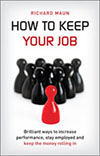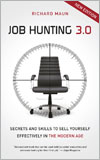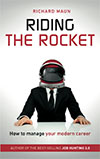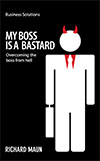better business blog
Tips and stories to add value to you and your organisation

Leadership In 7 Words
Leadership in business, was to some extent redefined after the publication of the classic book ‘Good to Great’ (Collins). When looking at successful businesses and researching the factors that made them so, the question of leadership naturally came up.
What the researchers discovered, was that the more successful corporate businesses were not lead by charismatic, gung-ho, celebrity type leaders. In fact they were lead by diligent, thoughtful, unassuming, motivated types. Leadership, for these people, was about finding out the facts, pooling the corporate brain power and then sticking to well-researched strategic plans.
Not a sexy, media-friendly approach, but a quietly efficient one.
I rather like this finding, because it shows that leadership is about people and performance and not about being the ‘big I am.’ In fact, in the book, the businesses who had arrogant leaders often over-reached themselves. Nobody dared to challenge the big boss, and so when he (it usually is a he, sadly) decided on a crazy plan, everyone followed …over the cliff.
So here is my take on leadership, in 7 words. We can make the subject complicated and draw neat models, or we can cut to the chase and highlight essential elements of success.
1 Awareness – we need to be aware of our own behaviour. What are we really like under pressure? Are we being angry, or approachable? What feedback do we need to hear and take note of? What do we need to recognise in ourselves (so that we can make changes)?
2 Repertoire – we do need to have some skills at our fingertips. Can you draw the Situational Leadership model from memory? Do you know 10 great coaching questions? Is there a useful template for contracting in your notebook? We need to have tools and skills that we can use from memory in the moment. We can choose the skills we need for our environment and we need to know them, so that we can use them.
3 Consistency – people like to know what they’re getting and not be spooked by sudden outbursts of anger, or be faced with a back-sliding boss. If we agree something then we need to stick to it. If there is a process, then we need to uphold it. Consistency brings safety into the room and enables colleagues to be more confident with their own decisions.
4 Flexibility – if we can’t make course corrections then at some point we will end up hitting a rock and sinking our business boat. Flexibility can mean taking the time to pause and reflect. It can mean cancelling an order half way through and capping the money wasted. It can mean responding to new information and abandoning previously cherished plans.
5 Determination – if the leader lacks the energy to complete plans then what chance does the rest of the organisation have? A determined leader focusses on achieving their goals and organises themselves to ensure they are not side-tracked. A determined leader is allowed to be tired and to support tired colleagues. What they can’t do though is to give up, whine, or be blameful of others. They need to cut through the mist and keep finding solutions.
6 Fairness – ethics and equality need to be embedded in any organisation. The leader needs to be their champion and be unswerving in upholding the rights of individuals. Fairness means being truthful and maintaining transparent recruitment and promotion processes. If we are not fair, then our bias will undermine the organisation.
7 Humility – easy to say and hard to do in practice. When did we last admit a mistake, in public? When did we own up to not knowing an answer in a meeting? When did we say yes, instead of admitting ignorance and saying no. Humility means to be self-effacing and recognising the boundaries of our competence. We all have limitations and the best leaders know theirs and delegate their weaknesses to better able colleagues.
This week, if you had to choose one of these 7 to work on, which one would you choose?
Happy leading!
Next week: Do What You Love!
e-publishing
Click icon for details


recent posts
browse archive
books
Click cover to view details on Amazon

How to Keep Your Job
Brilliant ways to increase performance, stay employed and keep the money rolling in
Published 2011 Marshall Cavendish
208pp

Job Hunting 3.0
Secrets and skills to sell yourself effectively in the Modern Age
Published 2010 Marshall Cavendish
260pp

 RSS
RSS


